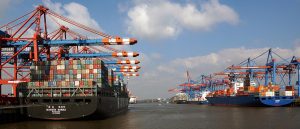Working with the United States Customs and Border Protection can be stressful and confusing. Here we answer some of the most commonly asked customs surety bond questions.
1. How can Customs require a bond?
United State Code Title 19, Section 1623 provides Customs with the legal authority to require a bond to be in place. Customs may utilize this legal backing to uphold the bond requirement if an importer refuses to be bonded.
2. Where is my Customs bond filed?
Customs bonds are filed electronically at the port where the transaction will take place. Usually, it is the principal’s responsibility to file his or her surety bond with the obligee. However, for customs bonds, the surety company handles the filing of the bond because Customs must have the bond filed in their electronic database.
3. What happens if the obligations of the bond are not met?
If the principal does not meet the obligations of the bond, a claim may be filed against the bond and the party harmed will be paid up to the full bond amount. If the U.S. Customs and Border Protection (CBP) files a claim for unpaid duties, the paid claim will cover the duties. If the principal acts against a different part of the bond, the CBP has legal authority to liquidate the importer’s goods. Specific bond obligations that are not met by the principal call for different legal actions carried out by the CBP.
4. How do I know if I need a single entry or a continuous entry bond?
When deciding between a single entry or continuous entry bond, an importer should determine how many transactions are going to be made at the U.S. port. If an item is entering a port a single time, a single entry bond will be needed. The bond only covers the specific entry it is written for and is terminated once the entry is completed. If the importer plans on multiple entries into the port on several occasions in one year, a continuous entry bond will be needed. A continuous bond renews every year and must be physically cancelled.
5. What is ISF?
Back in 2010, Importer Security Filing (ISF) became mandatory for importers. ISF is a 10-digit code that is sent to Customs on all shipments via air or sea. ISF must be completed before the shipment is placed on a vessel at its point of origin. The importer is responsible for the completed filing before the shipment of goods.

